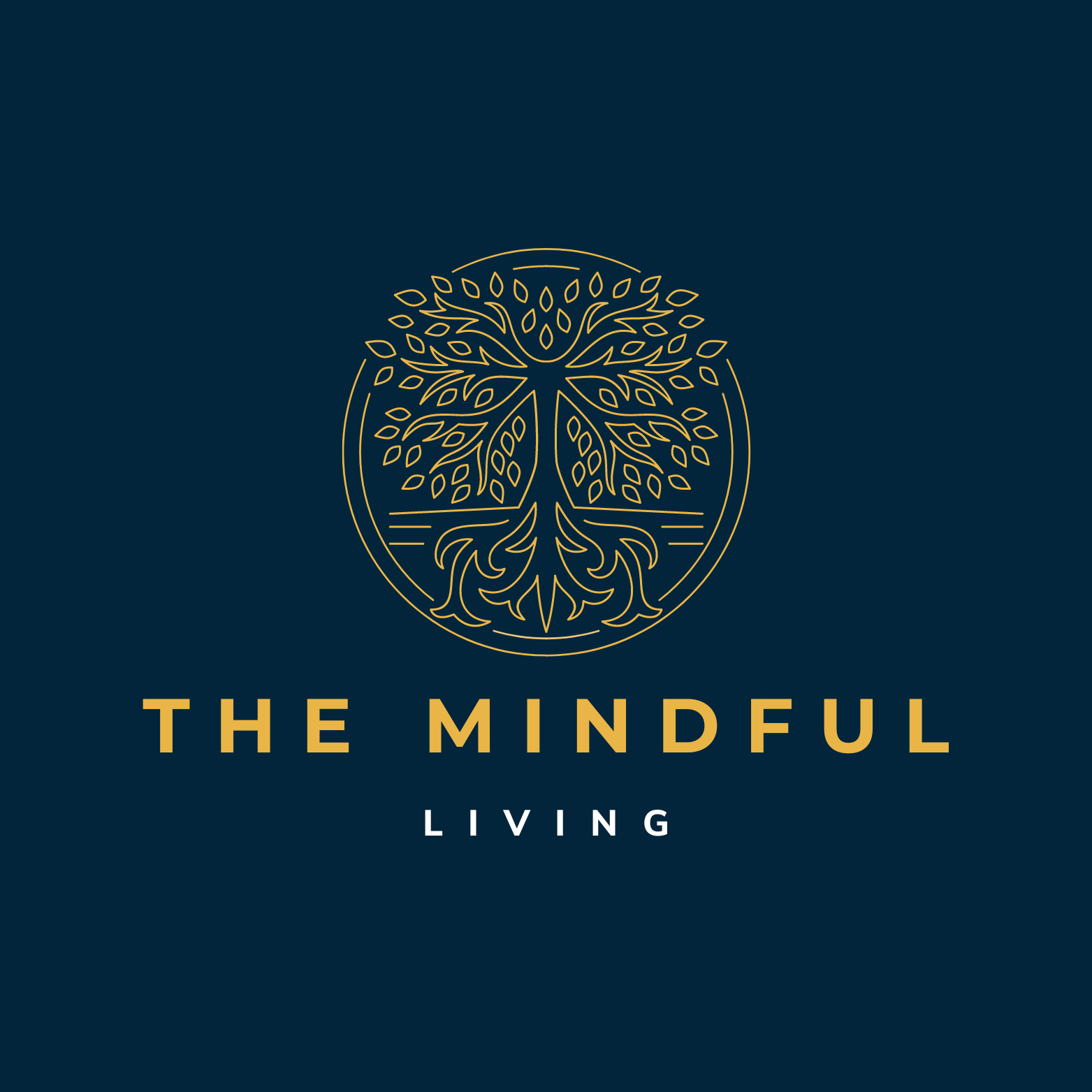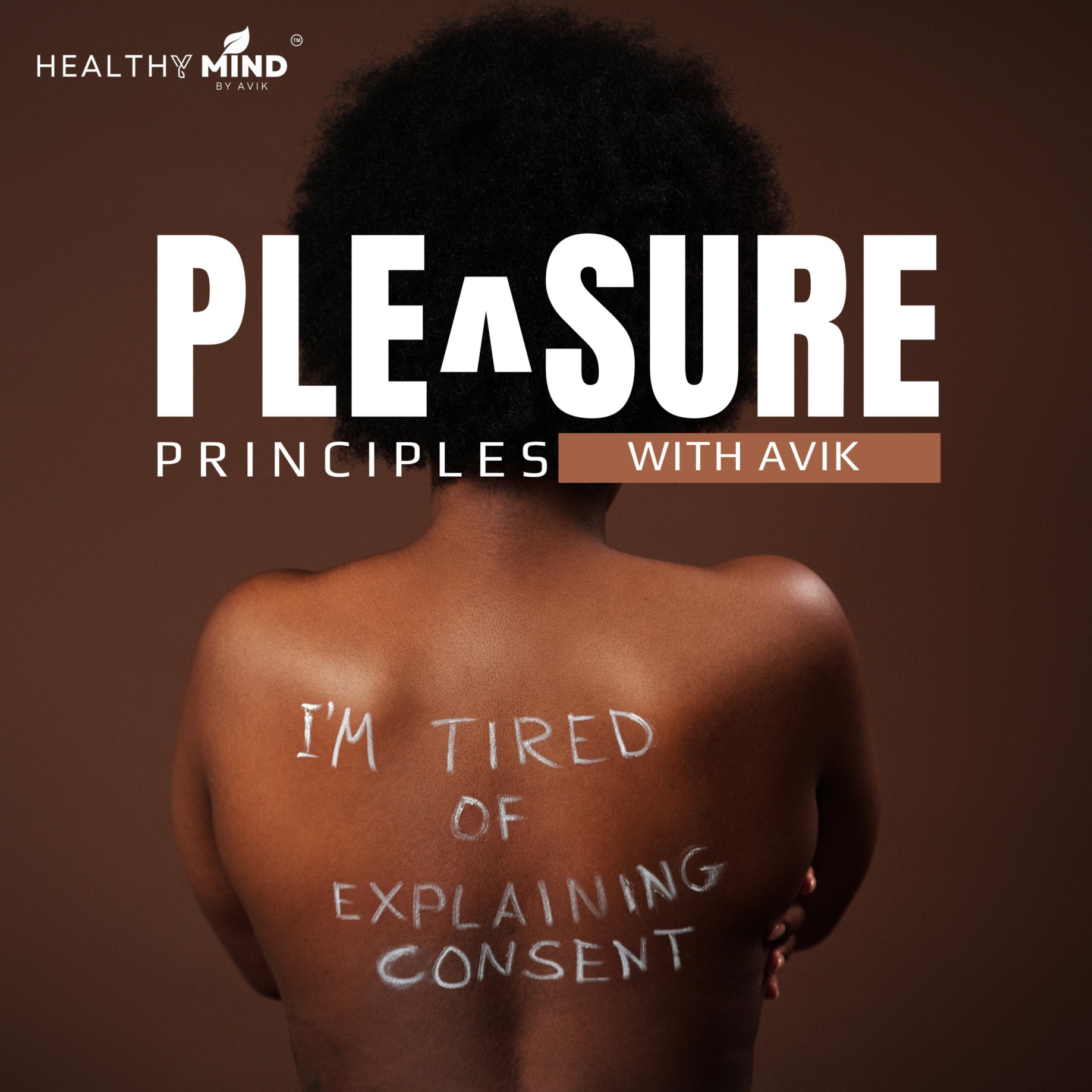.jpg)
Mind Over Masculinity
Let’s stop asking men to "man up" and start asking how we can lift them up. After all, mental health is not just a women’s issue or a men’s issue—it’s a human issue.
Take the first step today. Talk, listen, and advocate. Together, we can make a difference.
Mind Over Masculinity
Breaking Free from Comfort: A Journey Into Growth - Shane Perry
Have you ever felt comfortably numb, stuck in a routine that doesn’t serve your higher aspirations? Join us for an insightful episode of Mind Over Masculinity where host Avik invites Shane Perry, an accomplished entrepreneur and achievement coach, to dive deep into the topic of comfort zones and their insidious role in stalling personal growth. Striking the right balance between safety and challenge can be a tightrope walk; while comfort can feel like home, it often leads to complacency.
Shane unpacks the pivotal concepts of comfort zones—how they form over time and ultimately become barriers to achieving our dreams. With staggering stats indicating that 92% of individuals fail to reach their goals, it becomes paramount to shift our mindset away from these limiting beliefs. Discover the revolutionary "Disruption Factor," a way of viewing discomfort as a necessary stepping stone towards realizing our ambitions.
Listeners are treated to practical strategies to help them embrace change, tackle fear, and realistically pursue their aspirations. Shane emphasizes the significance of setting clearly defined goals while cultivating a vision for the future, seamlessly tied to action plans and the all-important 90-day execution cycles.
As we navigate through tangible exercises and reflections, we encourage listeners to confront their fears and identify the mindset shifts needed to enable growth. Whether you’re seeking to advance your career, improve your health, or enhance personal relationships, this episode provides a rich toolkit of insights and motivational tech
Automate Social Media Post
Make Short Clips From Long Videos
Loved by 4M+ marketers, entrepreneurs & creators
Create and translate videos
Create and translate videos with HeyGen's AI Video Generator
Buzzsprout Podcasting
Disclaimer: This post contains affiliate links. If you make a purchase, I may receive a commission at no extra cost to you.
-----------------------------------------------------------------------------------------------------------------
Want to be a guest on Mind Over Masculinity? Send me a message.
-----------------------------------------------------------------------------------------------------------------
Stay Tuned And Follow Us!
- YouTube - https://www.youtube.com/@healthymind-healthylife
- Instagram - https://www.instagram.com/podhealth.club/
- Threads - https://www.threads.net/@podhealth.club
- Facebook - https://www.facebook.com/podcast.healthymind
- LinkedIn - https://www.linkedin.com/in/newandnew/
Hey everyone, welcome back to another episode of Mind Over Masculinity, the podcast where we explore the inner world of men mental health, personal growth and what it really takes to live a life that feels meaningful. It really takes to live a life that feels meaningful. I'm your host, avik, and today we are talking about something that we all face but few of us confront head on our comfort zones. So let's be real, like getting comfortable can feel like the goal, sometimes right. But if you have ever hit that point where comfort becomes complacency and your goals start feeling further away instead of closure, so this episode is for you, because today I'm sitting down with one and only Shane Perry.
Speaker 1:So, welcome to the show Shane.
Speaker 2:Thank you, avik, really happy to be here.
Speaker 1:Lovely, lovely. So, shane, like before we start, I'll quickly have to introduce you to all of our listeners. Dear listeners, shane, who knows exactly what it takes to not only leave your comfort zone behind but build a whole new zone where you can thrive. So Shane's an entrepreneur, achievement coach and the founder of Disruption Factor, a system that's helped countless people break free from mediocrity and step into hyper points, and behind it all is a powerful personal story of the resilience. So, shane, welcome to the show. I'm really excited to dive into this topic with you.
Speaker 2:So, yeah, Absolutely yeah, let's do it.
Speaker 1:Lovely, lovely. So I mean the comfort zone. It's a two word thing, but it has a lot more gravity. So if you can share, like, what comfort zone really is, I mean any experience, what does it look like in people's lives and why it is so, so dangerous if left unchecked?
Speaker 2:Absolutely. I'm happy to, and, as a performance consultant, my main focus is to teach people really how to achieve their goals and be successful, and there's a lot of people, there's a lot of things out there that teach success. I teach a lot not only about success, but I educate people about the enemy of success, and the absolute biggest enemy is our comfort zone. Enemy of success, and the absolute biggest enemy is our comfort zone. And that comfort zone is something that we've built over time through our habits, our routines, our upbringing, our mentality and, of course, our paradigm. Our paradigm is, in its simplest form, is our worldview of something. So, for example, the number one goal set in the world is weight loss. Well, someone's paradigm might be. I've been heavy my whole life. I've always struggled to lose weight. I've tried diets before. They've never really worked, and that's their view of it. So with that view, they're not going to be very successful in anything that they do.
Speaker 2:So our habits, our routines, our upbringing, our paradigm has created this comfort zone and as humans, as a species, we don't like being uncomfortable, we like comfort, and so what you see out there is. You see a lot, especially on social media. You see a lot of people mentioning the comfort zone. You see all the circles out, the circles out there, the memes you know comfort zone, fear zone, growth zone, success zone. You'll hear people say things like ultimately, to build a new comfort zone that consists of you doing what you need to do to achieve and maintain that goal Right.
Speaker 2:So our comfort zone is primarily comprised of just our daily routines, our normal habits, the normal things that we do, normal things that we do, and anytime we try to break that routine or add something in there, it disrupts that and it makes us uncomfortable, which is why we run back. And I would just say this I would say that 92% of people that set goals in the world don't achieve them. Only 8% do, and that shouldn't discourage anybody. It just should make them inquisitive as to why do so few people achieve their goals, and Avik, it's rarely, if ever, because they lack the physical ability to do so. In other words, whatever goal you have, you can achieve it. There's nothing tangibly or physically holding you back. Why so few people achieve their goals is because of their mentality, the way they think and their inability to get out of their own way in terms of their thinking. So it starts with the comfort zone.
Speaker 1:Exactly, that's very true, and with this definitely it's coming to my mind. I mean, I think a lot of us convince ourselves that being comfortable is the goal only and we think that that, um, like I'm not in the pain, why should I change? Uh, but I I really like, like you have said, like comfort can be a slow trap, that, uh, that that keeps us stuck in mediocrity, absolutely.
Speaker 2:Absolutely. There's five areas of our life. There's five areas of our life. There's relational, spiritual, recreational, financial, which includes business, and physical, fitness, diet Whatever someone's trying to do to improve an area of their life, it falls into one of those five categories. I want to be better at this. I want to make more money. I want to be better with my money. I want to start a business. I want to get fit. I want to lose weight. A recreational is actually big. I want to learn to play a musical instrument. I want to be a better bowler, you know whatever it is. But to improve any area of your life, what a lot of people don't realize, avik, is that it requires you to actually set a goal. It's not going to happen and a lot of people don't do that. So anyway, I'm jumping ahead a little bit here. I'll turn it back over to you.
Speaker 1:No, that's totally okay. That's really really fine and also like leaving your comfort zone sounds great in theory, but in practice it's definitely scary. So how do you teach people to embrace this discomfort without feeling overwhelmed or kind of paralyzed for the figure?
Speaker 2:Avik. A lot of it, as simple as it sounds, just comes down to people being able to be aware of what's going to happen and manage their expectations. Okay, so there's. It starts with let's just stick to the weight loss. As I mentioned, that's the number one goal set in the world and it's the beginning of February we're still in the New Year's resolution season, right, where people are doing that. So it starts with okay, I need to actually set a goal and I need to write it down and I need to surround myself with that.
Speaker 2:Okay, I want to lose weight? Okay, well, how much weight specifically? And when you have to set 90 day, 120 day, 100. And then 12-month goals. So three-month, six-month and 12-month goals. So you need to be specific about the goal. You need to cultivate that goal. In other words, like, let's say that you want to be an entrepreneur and you want to start a business because you want more freedom and more money. Okay, well, when you have that freedom and you have that money, what is your life going to be like? Are you going to live in a different home, drive different cars? What will change? Print out pictures of that life and surround yourself with them. Okay, so now you're going to create your action plan I'm going pretty quick here and that action plan is going to be the steps required for you to achieve that goal Again.
Speaker 2:So let's say it's weight loss and part of your action plan is I need to change the way I eat. I need to get all the junk out of my house. I need to stop drinking soda. I need to drink more water. I can't snack. Less desserts, maybe no alcohol during the week if you're a drinker, and, of course, some form of exercise. True, so this is all the easy stuff. It's easy and fun. To create a goal and create a plan of this is what it's how it's going to happen. Then and this comes to your question then they embark on that plan to achieve the goal.
Speaker 2:Okay, there's two things that almost every goal have in common. One is, when you start embarking on that action plan, doing the things required to achieve that goal, you are going to be hit with a ton of disruption before you see even an ounce of success or results. Okay, the next thing that goals have in common is you're almost never where you want to be when you thought you'd be there, which combined with the disruption to be very discouraging, and that's enough to send people back to their comfort zone. And the disruption aspect of it is really my focus. The name of my company is Disruption Factor, because that's the term that I coined for it.
Speaker 2:It's the disruption factor of you embark on a goal and a lot of your habits, a lot of your daily routines get disrupted. Now, now you've, let's say, you want to lose weight, you can't eat the things you used to eat, you might be going to bed hungry, you might have some caffeine headaches because you're not drinking soda all day, you haven't exercised in a long, long time and you're out there exercising, even walking, and man, you're so sore you can't even brush your hair and it's just so uncomfortable. And combine that with the fact that you're not going to see the results immediately, so you're didn't hit with this disruption. We don't like being uncomfortable, so we don't wake up one day Avik and have this conscious decision going I'm going to stop and I'm going to run back to my comfort zone. That's not how it happens. What happens is we just slowly start falling back into our habits and our routines and we kind of tend to live for the short term and next thing you know that goal has slipped through our fingers like sand and it's gone so for a lot of it. People just being aware of this, just being aware, like, look, I want to lose weight, okay. So set a goal, cultivate it, create an action plan, embrace the disruption. This is going to happen to you. Embrace it, look forward to it.
Speaker 2:In fact, in my online course and a lot of my one-on-one teaching, I have people do an exercise of I want you to write down tangible aspects of the disruption that you expect to occur. What do you think is going to happen? And so a diet. They might say well, I'm going to go to bed hungry and I'm going to have cravings and I'm going to struggle to drink all the water I need to and exercise. And the more they can recognize it, anticipate it and even embrace it.
Speaker 2:And how you embrace it is things like you stir up the competitiveness inside of you and you say, look, when this disruption hits, I'm going to be tempted to give up or just not do it. That day, I need to remind myself that that's what most people would do, so I'm not going to do that. That's how I'm going to win. So there's a lot of exercises, so I'm not going to do that. That's how I'm going to win. So there's a lot of exercises, but that, in a nutshell, really encapsulates what you asked of. Why do people, why is it so hard to leave the comfort zone and why do they head back into it?
Speaker 1:Wow, that's really awesome, I have to say. And here one more thing is like is there any specific kind of exercise that you'd recommend for someone who is taking the first step out of the zone?
Speaker 2:Yes, yes, a lot of exercises that area of life forward. Okay, so I'll use myself as an example. My entire life, I've struggled with four things. Now I don't struggle anymore because I've mastered this and this is how I've become successful, but it's still there. It never leaves for this and this is how I become successful, but it's still there, it never leaves.
Speaker 2:So there's four character traits that I personally have that not only keep me in a comfort zone, but keep me from doing what I need to do. One is I'm a natural procrastinator. I'm not lazy, but I'm a procrastinator. I will always put off. I got to stop that. Number two is I have an intense fear of rejection. Okay, so, when I started my business 36 years ago, my business involved prospecting, talking to people, prospecting and it was. It was awful for me because I have this intense fear of rejection.
Speaker 2:The next, the third characteristic that keeps me trapped if I'm not careful is I care way too much about what other people might think or what they might say and Avik, honestly, I'm dealing with this right now because my team of people, disruption Factor as a business, is two years old and it's going well and my team of people are pushing me hard for my next step. They're like you have to get out there more on social media and promote your business, and the only reason I haven't up to this point is I still get too concerned about, like, what people are going to think. I still struggle with this. I just push through.
Speaker 2:And then the fourth thing that I have always dealt with is I'm easily distracted. I've got some ADD going on and I can get started on a task and next thing you know, I'm over here watching TV, playing my guitar, going. Wait, I was supposed to be doing something. So those four things are my character traits that have that always want to pull me back into my comfort zone and, more importantly, keep me from doing what I need to do. So that's a tangible exercise that I think people should do is try to identify what your character traits are. It's a real introspection. Don't be shy, it's just you. You're not gonna you know, you're not gonna sit in a circle and stand up and say, hi, my name is so and so and I'm a procrastinator, right, this is just for you and it's going to help you identify these things so you can over overcome them.
Speaker 2:Yeah, exactly, I love it and and um if you don't mind, avi, can I just add something to that? Sorry to interrupt Another exercise in this. I'll be quick. Another exercise that I have people do is I'm a is.
Speaker 2:I teach a lot about building your life in 90 day cycles, right? So 90 day cycles build your life, because in 90 days anybody can get focused, change some habits, change their lifestyle and do something for 90 days. First 30 days is when you experience all the discomfort and you don't see results. By the end of the second 30 days you're going to start feeling a little bit, seeing some results, and by the end of the 90 days, the things that used to be uncomfortable won't be so uncomfortable and you're starting to build a new routine, new habits, right? So we want to build our life in 90 day cycles. You want to do everything in 90 day cycles, 90 days at a time.
Speaker 2:Now one of the exercises that I have people do is I'll have them write down three things, just three. Just three things that you know you need to either stop doing, or you need to change, or you need to start doing to make these 90 days work. So just three things, just those three things that you know you need to either stop doing or that you need to change. Kind of the same thing or things that you know you need to start doing are all three in order to make these 90 days work. So that's two tangible exercises that I put people through right there.
Speaker 1:Oh, that's awesome, yeah. And then like this thing, like you mentioned, that 92% of people fail to achieve their goals. Now, what's the first or maybe practical step that someone can take today to shift that statistic in their favor, that statistic in their favor?
Speaker 2:Yes, absolutely. So how can they be an eight percenter? The first thing I would say is don't be intimidated by that. I mean because when someone first hears that only eight percent of people that set goals achieve them, they automatically think well, what makes me think I'm part of the elite eight? Well, that's not it. It's understanding that it's 100% mental. So what I do is I teach people to become high-performance individuals. Now, when I say that, a lot of times people automatically assume that has something to do with sports or athleticism, and it doesn't at all. High performance individual is somebody that could set a goal and make the necessary changes in their life to do what's required to achieve that goal and then achieve the goal. You're a high performance.
Speaker 2:And the thing is, is it's 100% mental? It is the way we've been brought up to think. It's looking at things differently, it's learning mindsets and it's not easy to do Avik, because we live in a tangible society. People want to be able to see something tangible. Give me something that I can plug in and turn on and it's going to help me do it. When you're talking about mindset stuff, this is primarily intangibles and we have not been raised as a society to necessarily embrace the intangible, if you will. So it's mindset, it's understanding these concepts and putting yourself through the exercises to do it. It's really because most people just say you know, I'd like to do this, I think I want to do this, and that's it. They don't sit down and they don't sit there and go okay, I want to get better with my finances. So to do that, I want to move the financial area of my life to a new level. To a new level. They don't think this way. We haven't been taught to. So in order to do that, the first thing I need to do is I need to write down an actual goal of what I want to do with my finances, to get control of my finances, whether it's save money, make more money, less spending, whatever it may be, I'm just picking an area. Now that I've created that goal, I need to cultivate that goal, surround myself with images, and maybe even sayings and words, of what my life will be like when that goal is achieved. How am I going to feel? If it's financial, it might be, you know what. I'm going to sleep better and I'm going to not stress as much. My marriage is probably going to be stronger, because the number one cause of divorce and marital stress in the world is financial stress. So you paint this picture. Then you create your plan Okay, so this is what we need to do. Then you embark on that plan and you anticipate the disruption that's going to occur With that.
Speaker 2:You embrace it, you identify it, you work in 90-day cycles. You understand that the days that you feel like not doing it are the days you need to do it the most. You learn these mental exercises, if you will. For example, let's say it's fitness and you are dieting and you are exercising. And what did I say earlier? That one of the things that all goals have in common is you're typically never where you thought you'd be, when you thought you'd be there. So you had a goal to lose 10 pounds in your first 60 days and you lost three. The way we were brought up, all of your instincts say this isn't working, forget it, it's not worth the pain. But you don't think that way. Instead, you put yourself through this exercise. If you're doing what's required to achieve your goal, which you are, you're putting in the work, then just tell yourself this I'm not where I want to be, but thankfully I'm not where I used to be.
Speaker 2:You also need to learn how to cultivate negative motivation. Now, in my space of you and I, in our space of helping people think differently and self-improvement and so on, personal development, being negative is considered a no-no right, because we're always taught you need to be positive and, man Avik, you need to think how great it's going to be when you are at your ideal weight and you're wearing those clothes, and how good are you going to feel and the energy you're going to have and the confidence you're going to have. Right, and you need to do that. You need to cultivate that positive. What's it going to be like? Right? But you need to also think about what I call negative motivation. Here's what negative motivation is, and this is far more powerful of a motivator than the positive stuff. That is, whatever goal you have, you embark on it and you start and you're doing it.
Speaker 2:And now that you're doing it, you tell yourself this now that I'm going, if I stop, how am I going to feel six months, a year, two years from now, when, for a split second, I have this thought and that thought goes where would I be right now If I just wouldn't have quit, if I just wouldn't have stopped, and we've probably all had those thoughts about something, and that is one of the most gut-wrenching, harshest thoughts that you can have. Right, I'm 57 years old. I am four years into my physical routine. I never got what you would call maybe fat, but I was really out of shape and heavy for me, and I got back in the gym after probably 12, 13 years of doing nothing, and in the last four years I have had to put myself through all of these exercises that I've been teaching people for the last 30 years. Right, and I will tell you 100%. I'll just end with this.
Speaker 2:I will tell you this 100% the single thing that has kept me going with my physical routine, and the same thing that kept me going when I was younger, trying to build a business, was not the thought of how great I'm going to feel when I hit my goal. Never, that wasn't it. It was. How am I going to feel down the road? My goal Never, that wasn't it. It was how am I going to feel down the road if I stop thinking for a second? Where could I be right now if I just wouldn't stop? That is what I call negative motivation. That will keep you going more than anything. So these are just some of the things, and again, another long answer. I apologize, I'll turn it back over to you.
Speaker 1:Oh sure, it's totally fine. I really loved it. And I have to say, shane, like this has been such a powerful conversation and like you have given us so much to think about, like from recognizing the traps of our comfort zones to taking practical steps towards breaking free, creating that life that we actually want. So, for everyone who is listening, if you are feeling stuck or you have been telling yourself that, hell, start tomorrow or today is the something I don't want to, so then it's the wake up call Get out of your own way, embrace the discomfort and trust the process, because you have heard Shane's story. You can do it, yes.
Speaker 2:So, shane, where people can find you, yes, I would say really two things my website, which is disruption-factorcom, disruption-factorcom, disruption-factorcom all of my social media contact information, information on my course. Everything is on there and you know they could check out my, my podcast. My podcast is just me 15 minutes a week, one episode that just gives people tips on how to stay focused on their goals and mindset stuff, and that podcast is called Act Achieve Live on Spotify and Apple. And, yeah, reach out to me, I'm available. I have a team of people, but when it comes to correspondence, when it comes to someone reaching out on me on social media or through my website or anything, I get those personally. I respond personally, so you will hear from me.
Speaker 1:Oh, wow, that's really amazing. And on this, definitely guys like, do not forget share this episode with a friend who's been talking about making a change but hasn't taken action yet. So let's keep this conversation going, leave us a review, hit that subscribe button and remember that you are capable of so much more than you think. So it all starts with a choice to leave the comfort behind. So until next time, stay bold, stay uncomfortable and stay growing. So thank you so much.


.jpg)




